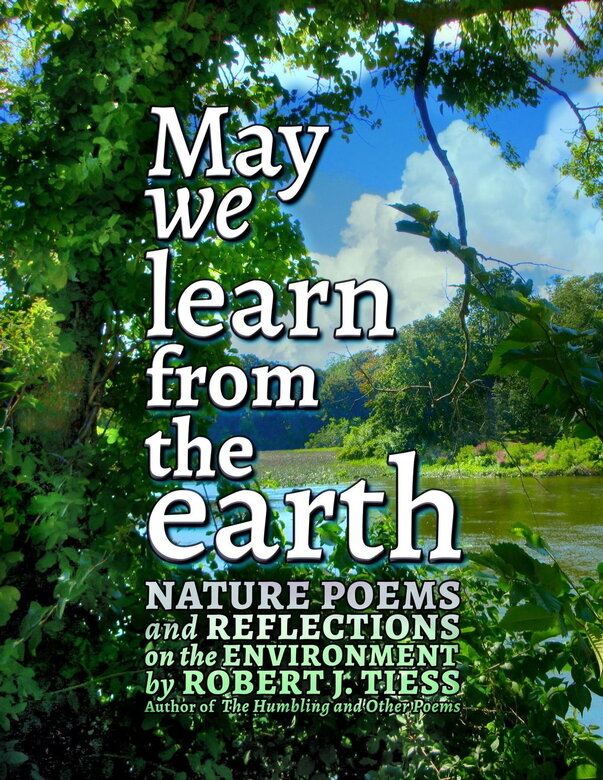
With this stunning observational record of the natural world, poet Robert J. Tiess has curated a brilliant collection in May We Learn From the Earth: Nature Poems and Reflections on the Environment.
A self-described ecopoet with a remarkable eye for the secret beauty and subtle wonders of nature, this is both an homage to the Earth and a desperate plea for a shift in collective consciousness. From academic and allusion-laced verses to thoughtful personal poems that reflect the writer’s own experience, this broad-ranging book feels both contemporary and timeless.
“Ecclesiastes of the Earth” is one of the strongest poems in the early sections of the collection, laying out the dangerous path of our planetary future if significant, rapid, and global shifts do not occur. Unlike many of the other poems, which use descriptive language and aesthetics to convey meaning, this piece holds nothing back, reminding readers in clear language that a season of deep reckoning is on the way.
“Blue Warbler” is another well-crafted piece, as is “Overcoming,” both of which discuss seemingly surface-level attributes of a natural element, but actually delve far deeper into philosophy. “Oceanography” is a lyrical masterpiece, balancing simple ideas with profound truths: “the ocean holds / cold obscure truths / which scarcely reach our warmer beach, / so now I’ll go and dive below, / risk sharks and all / to seek and know.”
Structurally, the poetry varies widely, from complete free verse, lacking any meter or rhyme, to rigid and lyrical stanzas perfectly in tune with one another. Being able to move within styles and poetic expression keeps the collection fresh and engaging for readers, especially because the book is somewhat long for a book of poetry. There are abstract pieces, both in terms of form and subject, as well as vivid depictions of environments that are clear and obvious, without any allegorical or florid flourishes. Given the overall thematic tack, there is some inevitable redundancy and overlap in the pieces, so certain poems could be cut for greater concision.
The last quarter of the book consists of brief essays and prose pieces, from stream-of-consciousness prose on ecological philosophy to self-reflective analyses of ecopoetry itself. This section of the book feels a bit forced compared to the verse, as there are few ideas or narrative conclusions that feel particularly original or specific to the poet’s own perspective and experience. That said, “On Alarmism and the Environment” is a powerful and timely essay, cutting hard into the issues that continue to divide us. As a whole, the final section of this collection establishes a clarity of purpose behind the work, ensuring that the underlying intentions of the poetry are understood.
When it comes to technical issues, some of the enjambment feels arbitrarily chosen in the free verse pieces, and there is metric inconsistency in certain poems with more traditional structures. However, overall, this collection is both meditative and powerful, working both as an emotive work of lyrical poetry and an inspiring clarion call for change.
Book Links
STAR RATING
Design
Content
Editing
Get an Editorial Review | Get Amazon Sales & Reviews | Get Edited | Publish Your Book | Enter the SPR Book Awards | Other Marketing Services























Leave A Comment